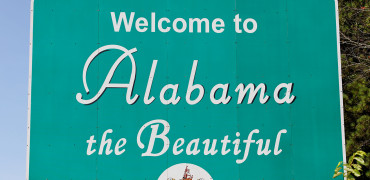With the annual phenomenon of “Talk Like a Pirate Day” last week, I thought now seemed like a good time to talk about how the British often use humour as a coping mechanism to turn scary, serious issues (like climate change), dangerous activities (like privacy) and political disasters (arguably Brexit…) into light-hearted banter.
Political cartoons, satirical puppet shows, comedy panel shows and crude political jokes are all aspects of British history that I want to explore
Cartoons
As a studier of history I believe that the first usage of cartoons as a means of humour and political satire was by William Hogarth, an English cartoonist who lived through the political corruption of the 18th Century. His most famous cartoon was the intricately detailed Gin Lane which served as a cautionary tale to the effect of cheap gin on society. This particular cartoon is currently displayed at the Tate Britain and I promise you that the more you look the more details you see.
Across the pond, the cartoon was also famously used in the 1700s. The “Join, or Die” cartoon by Benjamin Franklin featured in the Gazette and later become a symbol of colonial freedom against the British.
But since then, alongside the more recent demise of print media and the rise of digital, the cartoon still stands strong as a medium to humorously and poignantly portray the serious issues in society – and often still serves as a cautionary tale.
For example, more recently cartoons and cartoonists across the world, from famous satirical magazines like Charlie Hebdo, The New Yorker and our very own Punch Magazine which was published between 1841-2002, have changed the world with their perspectives on religion, elections, and climate change.
Even the lesser controversial Sunday newspaper comic strips of the 20th Century shed a light of humour on war, sexism and corruption. They even poked fun at more direct issues like office politics, relationships and the struggles of getting up in the morning.
You can see some of my favourite cautionary cartoons and comic strips below:
Joel Pett – American cartoonist Joel Pett has created a series of fantastic environmental cartoons highlighting the seriousness of climate change in a comedic cartoon style.
Matthew Pritchett – Matthew Pritchett MBE has been a cartoonist for the Telegraph since 1988.
I also recommend visiting the Cartoon Museum in London.
Satirical puppet shows
The most famous satirical puppet show is Spitting Image a British BAFTA and EMMY award winning TV show from the 80s. More recently a similar style puppet show called Newzoids filled this slot in 2015 and ran for 2 seasons. Characters were voiced by impressionists who were famed from previous live action satirical sketch shows like Dead Ringers and The Big Impression (featuring Alistair McGowan from Spitting Image).
In America even Brad Pitt has jumped on the funny sketch show bandwagon, poking fun at Donald Trump in a Climate Change skit. Other American sketch shows include Saturday Night Live which has had many a political controversy in its 40+ year airtime on NBC.
The common feature between all these shows was political and celebrity satire, and the use of humour to represent serious issues affecting the world.
Comedic Panel Shows
Have I got News for You, Mock the Week and 8 out of 10 cats, are just a few of the British TV panel shows where a number of comedians poke fun at current affairs. Recently Brexit has been top of the comedy agenda, although as this article on The Telegraph highlights; comedians are struggling to satisfy their right-wing audiences with anti-brexit jokes – so at some point, for some people, the seriousness of the issue makes the laughter stop – especially when it becomes offensive.
So what do I think about highlighting the funny side of the downfalls of society, humanity and our wonderful planet?
I love comedy, and I think both cartoons and TV shows are great ways to emphases the importance of an issue in light-hearted way. I really dislike the moral panic often created by mass media and I think being in fits of hysterics, over fits of hysteria is a crucial way to both educate and inform everyone – from children to adults, about anything and everything.
So I encourage more jokes, more cartoons, more sketches and more cautionary tales about climate change, because right now this is one of the biggest and most serious issues affecting us today. And if laughter is the best medicine, maybe we all need a dose to realise the challenges ahead.
Ellina Webb is a Senior Marketing Executive at Mitsubishi Electric
If you have any questions about this article, you can contact us via email. Or if you would like to tweet us, please follow our MEUK_LES twitter page.
We upload new articles every week so remember to check back regularly.
You can also sign up for our monthly newsletter below.


